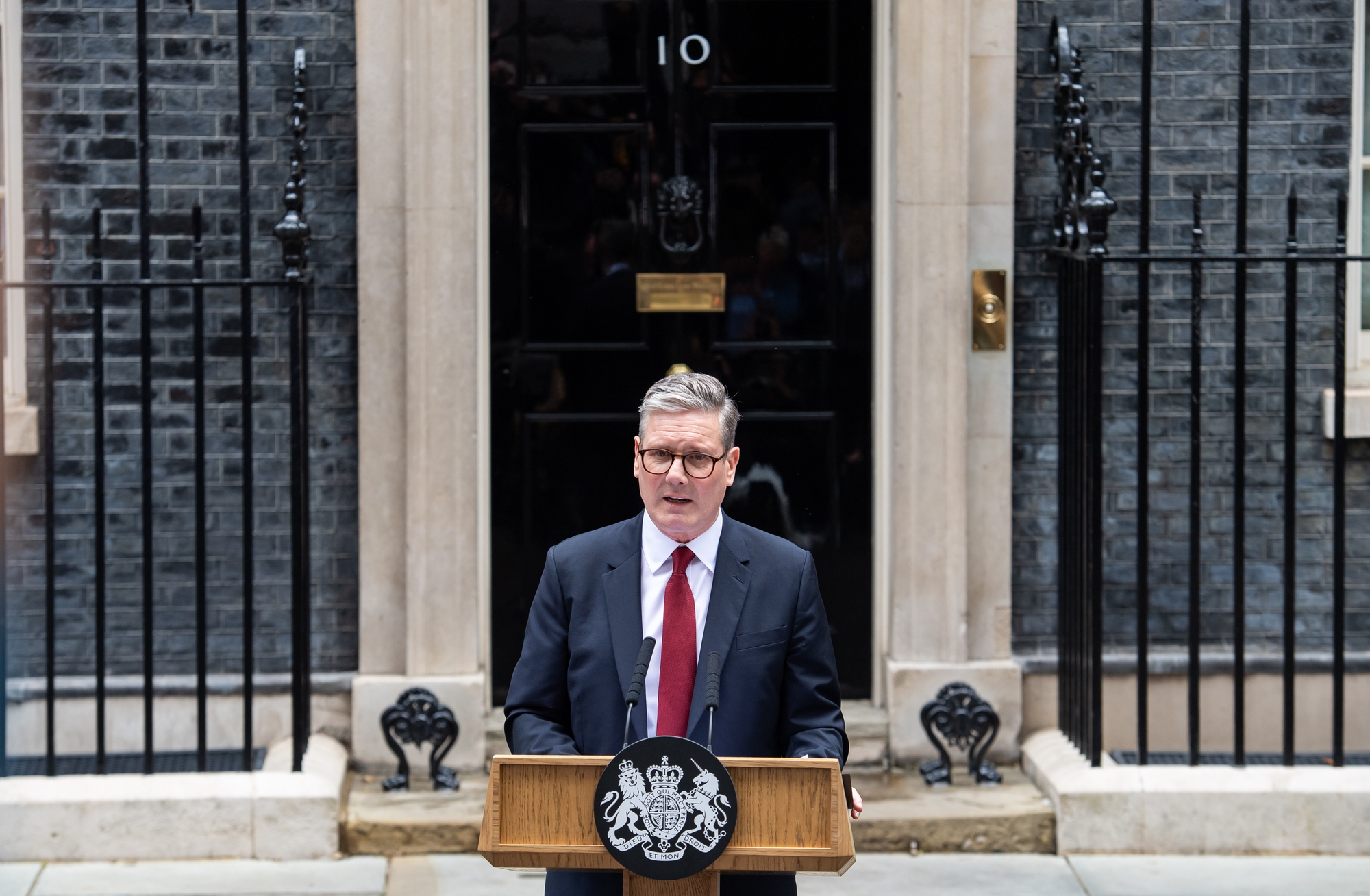A Milestone Session for Britain’s New Prime Minister
Britain’s newly elected Prime Minister Keir Starmer faced a significant milestone on Wednesday, tackling his first House of Commons grilling during the weekly Prime Minister’s Questions (PMQs). This session marked a pivotal moment for Starmer, transitioning from his role as the opposition leader to leading the nation after a resounding electoral victory.
A Landslide Victory: Labour’s Triumphant Return
On July 4, Keir Starmer’s Labour Party secured a landslide victory, winning 412 out of 650 seats in the House of Commons. This historic win brought the center-left party back to power after 14 years in opposition. The new prime minister received a warm welcome from Labour lawmakers, who packed the green benches of the Commons, cheering for their leader as he took on his new role.
A New Dynamic in the House of Commons
During the often tumultuous PMQs, a rare moment of unity emerged as both Starmer and former Prime Minister Rishi Sunak, now the leader of the defeated Conservative Party, expressed their mutual commitment to supporting Ukraine. “I wholeheartedly agree on the need to arm Ukraine and set it on the path to NATO membership,” Starmer told Sunak, underscoring the unusual cordiality between the two political rivals.
Addressing National and International Concerns
In addition to their alignment on Ukraine, both leaders extended best wishes to British athletes competing in the Paris Olympics. Sunak humorously remarked, “I’m probably not the first person they want to hear advice from on how to win,” lightening the session’s tone.
Labour’s Agenda: Economic Growth and Social Welfare
Labour’s victory was built on promises to rejuvenate the U.K.’s sluggish economy, initiate a wave of housebuilding and green energy projects, and repair the country’s frayed public services. With a substantial majority, Starmer can pass significant legislation relatively easily. However, the new government faces internal and external pressures, particularly from anti-poverty groups and Labour lawmakers advocating for the removal of the controversial two-child welfare cap.
A Rebellion and Its Consequences
The two-child cap, a policy the previous Conservative government introduced, limits welfare benefits and tax credits to a family’s first two children. Despite pressure to abolish the cap, the new government maintains it cannot afford to do so immediately. This stance led to a rebellion on Tuesday night, with seven Labour lawmakers defying the party line to vote against the cap. As a result, these legislators, including former deputy leader John McDonnell, were suspended from Labour’s parliamentary caucus for at least six months.
Standing Against Child Poverty
Among the suspended legislators, Zarah Sultana voiced her conviction, stating, “I slept well knowing that I took a stand against child poverty that is affecting 4.3 million people in this country. It is the right thing to do, and I am glad I did it,” she told ITV.
A New Chapter for Britain
Keir Starmer’s first Commons grilling signifies the beginning of a new chapter for Britain under Labour leadership. With a robust mandate and a clear agenda, the new prime minister faces the challenge of uniting his party and delivering on his promises. As the government navigates these early days, the nation’s eyes are on how Starmer will shape the future of the U.K.







